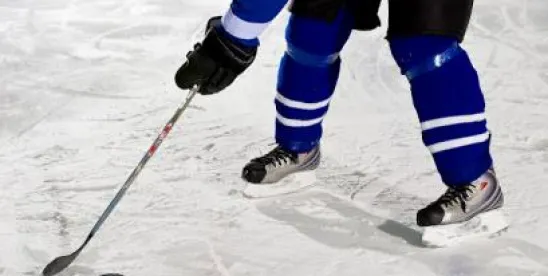Evan Barr filed a suit against his physical education teacher, Laurel Cunningham, and Township High School District 211 alleging willful and wanton misconduct for failing to provide protective eyewear during a floor hockey game.
Cunningham allowed students to play floor hockey during physical education class. The evidence presented showed that Cunningham took precautions to ensure the players' safety; namely, by limiting the game to 12 players, prohibiting fighting, high-sticking and checking, using plastic sticks, and using a safer "squishy" ball that flattened when stepped on. Yet, Cunningham did not require players to use goggles for eye protection, even when goggles where available for use during floor hockey. Barr was injured during a floor hockey game when the ball bounced off another player's stick and hit him in the eye. Barr did not know that protective goggles were available for his use.
The school district had no policy specifically addressing student safety in physical education classes. Cunningham had wide discretion as to how to teach her class, and the school district did not provide teachers with any guidelines on how to teach the sports covered in the physical education curriculum. Cunningham claimed she was aware of the goggles, but she was not sure if there were enough for all students to use.
Following a jury trial, the trial court granted the defendants' motion for a directed verdict. Specifically, the court found that Barr failed to present sufficient evidence of willful and wanton conduct to overcome the defendants' immunity under Section 3-108 of the Illinois Local Governmental and Governmental Employees Tort Immunity Act (Tort Immunity Act). Section 3-108 immunizes local public entities and employees from liability for injury caused by failing to supervise an activity on public property. 745 ILCS 10/3-108(a). However, if the failure to supervise rises to "willful and wanton" conduct, the Act does not provide immunity from liability. Willful and wanton conduct is defined as "an utter indifference or conscious disregard for the safety of others or their property." 745 ILCS 10/1-210.
Barr appealed the trial court's order granting the defendants' motion for a directed verdict. On appeal, he argued that the determination of Cunningham's conduct as willful and wanton was a question for the jury and not the trial court. The appellate court agreed with Barr and stated that the jury could have found Cunningham's failure to provide goggles was willful and wanton under the circumstances. Barr v. Cunningham, 2016 IL App (1st) 150437.
Additionally, the appellate court found that the defendants were not entitled to immunity under Section 2-201 of the Tort Immunity Act. Section 2-201 provides that a public employee "in a position involving the determination of policy or the exercise of discretion is not liable for an injury resulting from his act or omission in determining policy." 745 ILCS 10/2-201. Here, Cunningham did not hold a position that involved making policy determinations. In addition, the school did not have a policy for the use of goggles during floor hockey and gave Cunningham the discretion to manage her classroom. No evidence indicated that Cunningham exercised her discretion in deciding not to require students to wear goggles. She testified she thought there were not enough goggles for the students, but she did not check to confirm this.
The appellate court reversed and remanded the case back to the trial court for a new trial on the merits of Barr's claim. Ultimately, it would be up to a jury to decide if Cunningham and the school were liable for Barr's injury. To determine whether Cunningham's conduct was willful and wanton, the jury will consider the actions that Cunningham took to mitigate any danger.
Merely because a teacher could have done more to ensure his or her students' safety does not automatically mean that the teacher's conduct was willful and wanton. It is important to take reasonable precautions to prevent injury, like Cunningham did in this case, by limiting the number of students who could play, using plastic sticks and a ball rather than a puck, and prohibiting high-sticking, fighting, and checking. To limit liability, schools should ensure that there is enough safety equipment available for each student and have a policy in place requiring students to use the safety gear.




 />i
/>i
